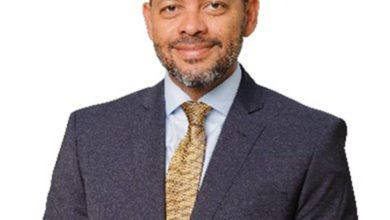Why traditional Caribbean remedies have a place in the American health care system

If you grew up in a Caribbean household like me, you know that for every little sniffle, there is a natural remedy from your granny or mother’s kitchen or garden. The old tradition of using herbal treatments for general wellbeing, the common cold, and even chronic ailments has worked for centuries in Caribbean communities. From aloe vera, arrowroot, lemon, honey, fennel seed, ginger, green tea and more — a trip to the local pharmacy is sometimes unnecessary when these natural remedies are within arm’s reach.
As a Caribbean American woman born and raised in the heart of Brooklyn, these convenient and inexpensive approaches have been the treatment answer for me since I was growing up. Today, my children know of these natural remedies because I raised them the same way my mother raised me. Whenever there was an itchy throat, I knew that a good slathering of mentholated ointment, paired with a cup of tea with fresh lemon, ginger and honey before bed, would likely have them feeling better when they woke up for school or work the following day.
A medicinal perspective anchored by the long-held belief that there is a natural remedy to treat everything from a rash to hypertension has become the way to treat various ailments for generations. Today, over one million Caribbean Americans reside in New York State, and many have adopted a similar form of healing to help guard against high health care coverage costs for themselves and their families. In addition to a desire for cost savings, there is a general hesitancy to give up herbal remedies in favor of prescribed medicine.
In many cases, traditional Caribbean cures have been an effective method for providing treatment for families’ needs. Yet, a tendency to trust home remedies in a non-emergency medical situation over the health care system creates a ripple effect of delayed doctor appointments, screenings and check-ups. A reactive approach has resulted in Caribbean Americans being disproportionately afflicted with preventable chronic diseases and having higher lifetime rates of hypertension, arthritis, and diabetes.
More needs to be done by health care providers and practitioners to establish a proactive and culturally attuned model that considers Caribbean American culture while addressing the reality of chronic conditions that lead to higher mortality rates.

We Can Do Both
An improved care system means having culturally competent health professionals who integrate community remedies in their model and understand the measurable impact it will have on Caribbean Americans’ social, physical and mental health outcomes. People need and deserve to see themselves represented in the health care system. For MetroPlusHealth, New York City’s five-star health plan, hiring health care leaders that look like, speak like, and deeply understand the nuances of the Caribbean American communities is foundational to how the organization serves New Yorkers. This means providing a customer service team that speaks over 40 languages and reflects the broad diaspora of those seeking coverage. Speaking a common language or dialect is critical for providers to care for the community.
Practical Solutions for Change
The traditional system of health care is prohibitively one-dimensional. Better care is not as simple as encouraging people to see a doctor regularly, check their sugar levels and cut back on the unhealthy parts of their beloved cultural foods. Ensuring a community’s health involves increasing awareness of low-cost options. Cost is a critical factor when choosing a health insurance plan. For example, MetroPlusHealth offers affordable, holistic care. Exclusive benefits include a fitness membership that rewards members for prioritizing their health. The rewards program also gives members points by incentivizing habits such as refilling prescriptions and drinking water.
In And With Communities Across New York City
Preventive care means reaching out to communities long before they are in the emergency room. This starts with annual checkups but also includes providing information in a way that speaks to Caribbean Americans. Sometimes the community may not identify with the images they see in health resources or meeting spaces to deliver health services. MetroPlusHealth leverages trusted community hubs, such as churches and barbershops, to provide proactive treatments such as blood pressure screenings. MetroPlusHealth also prioritizes attending events that matter to the Caribbean Community, like the West Indian Day Parade, to meet the community where they are.
Herbal remedies and western medical practices are in today’s health care landscape. It is the care provider’s role to create a holistic system that meets the needs and customs of Caribbean Americans.
Lesleigh “LIU” Irish-Underwood is the chief brand & external relations officer at MetroPlusHealth.





